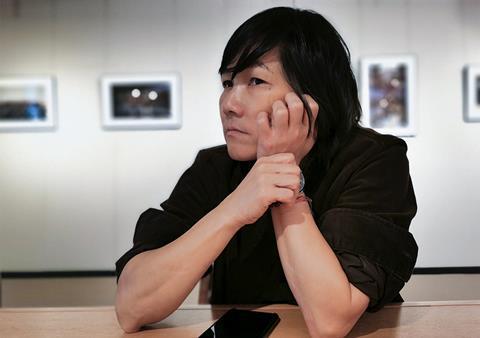As part of Screen’s Perspectives on 2020 series, the Hong Kong-based producer explains how she fell back in love with her hometown after the pandemic confined her there for 10 months — rekindling an urge to tell local stories.

Award-winning Hong Kong producer Jojo Hui has scored a rare double entry at the Oscars with Derek Tsang’s Better Days and Peter Chan’s Leap representing Hong Kong and China respectively in the best international film race for 2021. That is a particular achievement, as China-set Better Days ran into the Chinese censors for scenes of high-school bullying and its pressure-cooker exam subject matter, but was a hit when finally released. Volleyball sports drama Leap also suffered a long wait after the coronavirus struck and its theatrical release was delayed for eight months.
Starting out in the early 1990s as an assistant director and scriptwriter, Hui joined Chan’s Applause Pictures in 2000 and served as regular producer on his films such as Three: Going Home, Wu Xia, Dearest and The Warlords.
Hui has committed to nurturing new talents in recent years, including Tsang’s solo directing debut Soul Mateand editor-turned-director Derek Hui’s This Is Not What I Expected. In 2017, she set up Hong Kong-based Goodfellas Pictures with Tsang, with Better Days as their first production.
What is your most memorable moment of 2020?
The happiest was when Better Days swept the Hong Kong Film Awards in May, including best film. As the announcement came via livestream, Derek watched it online with his mother — who has since died — in the hospital, while I watched it in the office with my team including our longtime costume designer Dora Ng and co-scriptwriter Lam Wing Sum — both of whom won awards, so did Derek.
How have you adapted your working style to stay productive and sane during 2020?
After producing three films, Better Days, Leap and Li Na, back-to-back in 2018 and 2019, I meant to take a break in 2020. Leap had its premiere in Beijing on January 19 and I immediately flew to Australia to spend Chinese New Year with my family before returning to Hong Kong. Who would have thought it would take 10 months before I could make it back to Beijing again? It was fortunate Derek, Dora and I live in the same housing estate in Hong Kong so we can easily meet up for production meetings. I also go into the office about twice a week.
It may seem like we are not very productive this year in terms of output, but we are productive in a different way. Subject matters have been quite narrow in the past decade, probably because we have lost our feelings for the world we live in. When we are pushed to take a break, it’s a good opportunity to reflect on the past and ponder our next move.
Tell us one thing that changed during 2020 that you would like to see continue in 2021?
I think now we have learned that we can’t stop people from watching streaming services, which are always seen as film’s nemesis. But this new habit helps push those filmmakers, who were still hesitant about streaming, to take a leap of faith and try the new format. It’s not about whether we like this new direction or not, as it’s a natural progression.
What are you pinning your hopes on for 2021?
Covid-19 has changed the world dramatically, affecting not just our daily lives and work but also, on a more philosophical level, our world views and even our creative mind. The changes are fundamental, although some of them may not be too explicit now. When it’s possible to travel again, I am eager to go to different places to experience the changes firsthand and witness the ‘new’ world order. Nevertheless, I also hope we can go back to normal when people were not bound by physical distancing.
What excites you about the future of the film industry?
Before the coronavirus, I would spend two months in Hong Kong each year. But staying for 10 months made me realise how much I missed my hometown, and the urge to tell stories about Hong Kong started to grow.
Right now, I’ve got two new Hong Kong-set projects in development: one is a feature film to be directed by Derek [Tsang] about the city’s South Asian minorities, and the other is a drama series set in the 1960s and 1970s. It will be exciting to work with a new generation of Hong Kong directors with edgy ideas and on projects that speak to me.
Our Perspectives on 2020 series sees key figures from across the international industry landscape share their experiences during the pandemic year and their thoughts on the future. See below for more interviews in the series:

























No comments yet